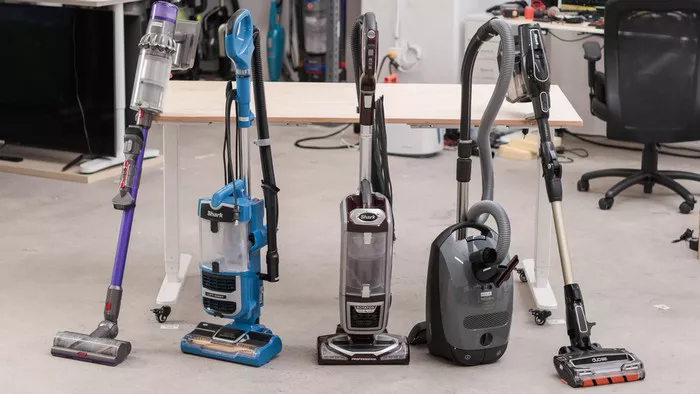Vacuum cleaners are designed to help us eliminate dirt, dust, and debris from our homes. However, have you ever considered that they might be contributing to the problem instead? Many people find a fresh layer of dust settling on furniture and surfaces shortly after vacuuming, leading to concerns that their vacuum cleaner might not be as effective as expected.
When searching for the best vacuum cleaner, you naturally expect excellent performance and cleaning power, especially considering the investment involved. Yet, it is possible for certain vacuum models to inadvertently spread dust. Knowing what features to prioritize can help mitigate this issue before making a purchase.
To understand why your vacuum might be spreading dust, we consulted experts who offered insights on ensuring optimal performance and usage.
“Yes, vacuum cleaners can spread dust if they lack proper filtration systems or aren’t well-maintained,” explains Mariya Gurkova, a cleaning expert at Fantastic Services. “Older or lower-quality models, particularly those without HEPA filters, may leak dust back into the air during operation. This is often due to inadequate sealing or subpar filtration, which allows fine dust particles to escape and circulate within your home.”
Additionally, James Longley, managing director at Utility Bidder, points out that your vacuum may spread dust if its dustbin is full and needs to be emptied. “When the vacuum reaches its capacity, there’s nowhere for the collected dirt, dust, and debris to go,” he notes. “Different vacuum types have varying methods for effective debris disposal, whether bagged or bagless.” Longley emphasizes that overfilled dustbins can diminish suction power and lead to dust escaping when emptied. Regularly emptying the dustbin—ideally after each use—will help maintain optimal performance.
To ensure your vacuum operates effectively and has a long lifespan, regular cleaning and maintenance are crucial. It’s essential to check for blockages routinely. If you find that your vacuum continues to spread dust and loses suction even after emptying the dustbin and cleaning the filter, it may be time for a replacement.
For those concerned about allergies, using a vacuum with a HEPA filter is essential. Without such a filter, your vacuum may not significantly alleviate allergy symptoms or respiratory issues compared to a high-quality air purifier. “HEPA filters can capture 99.97% of airborne particles, including invisible ones like pollen and mold spores, making them incredibly beneficial for allergy sufferers,” explains Mohammed Yakub, a floorcare expert at AO.com.
HEPA filters are available in both bagged and bagless vacuum cleaners. However, if you want to minimize dust dispersion, opting for a bagged vacuum could be more advantageous.
Moreover, regular vacuuming and taking your time during the process can help prevent dust buildup over time. Ultimately, no matter how much you invest in a vacuum cleaner, maintaining a consistent cleaning routine is essential for keeping your home clean and organized. A high-quality vacuum can make the task easier and save you time, but it cannot replace the need for regular upkeep.
Related topics:

